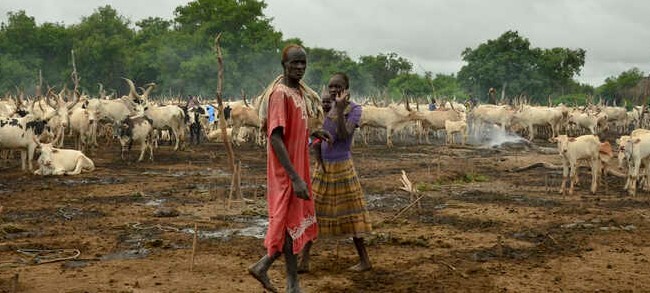Cattle keepers from Terekeka County who are still grazing their animals in the outskirts of Juba City have been ordered to return to their areas of origin in Terekeka County of Central Equatoria State, authorities have said.
In December last year, several cattle keepers arrived in Terekeka County with their cattle after they were urged to vacate Juba City as part of measures to resolve simmering tensions between the herders and the host communities.
Derick Derickson, the Press Secretary of the Central Equatoria State governor, told Radio Tamazuj Wednesday afternoon that state and national security committees met and resolved that the herders return to their home areas.
“The state security committee led by Governor Emmanuel Adil, together with the national technical joint security committee, met and deliberated extensively on security issues surrounding Terekeka County. It was resolved that the cattle keepers leave the contested areas for their areas of origin so that the two or the various communities can peacefully coexist,” Derickson said.
“As we speak, the evacuation process is ongoing. Well, as you know, a human being is a human being, and so there is always that element of not adhering to directives. But now the security operatives are tightening up matters so there is no way these cattle herders can be reluctant on this order. It is being implemented,” he added.
The official assured the cattle keepers from Terekeka County of their safety as they returned home.
Zechariah Laku, the secretary-general of the now-defunct Terekeka State, said more than 115, 000 head of cattle have arrived in Terekeka County and that more cattle keepers, with about 400, 000 head of cattle, have yet to vacate Juba County in the coming weeks.
“My message to our Mundari cattle keepers is that they should abide by the government orders and return home. Government is there to provide security and protection on their way home. Now, there are about 6 cattle camps still left behind and they are scattered over various areas surrounding Juba. Each cattle camp has an estimate of 400,000 cows,” Laku said.
He added that they fear returning because of their safety, “but we want to assure them that the government is there for them. They are worried that their cattle will be robbed on the way back home but the government is going to provide soldiers to protect them on the way.”
For his part, Major General Abednego Akol Ayuen, the Terekeka police commissioner, said they are finalizing arrangements for the safe evacuation of the remaining cattle camps.




